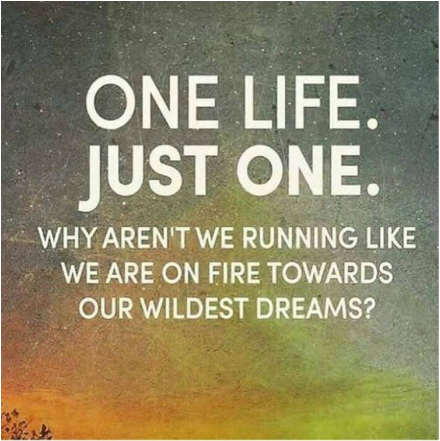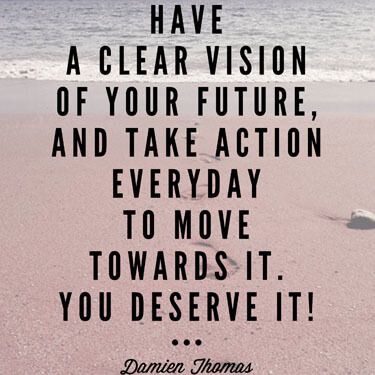 ‘Follow your Passion!’ ‘Dare to Dream!’ There is a whole 'inspiration' industry out there and nowhere is it more apparent than on facebook, Pinterest and other social media, and also in the plethora of self-help books that have cropped up since the New Age entered our lives. I have had many discussions with athletes and clients over the years and ‘inspiration’ can be relevant and entertaining but it can also be annoyingly semantically washed out and somewhat ethereally silly. Can we all the time lead divine and passionate lives just by looking at serene photos? I have been asked a few times where or who I got my inspiration from in my career. The first time this happened I actually looked blankly at the interviewer for a moment, and then my mind started racing through a possible list of people famous for doing impressive things—Lynn Jennings, Joan Benoit, Neil Armstrong, Ed Viesturs*. We are all supposed to have a hero that inspired us. Truth be told, while I admired these individuals, I don’t idolize them. I like their story. It's not that I haven't been impressed and in awe of other athletes or other brave and daring people, or that I did not have role models and great coaches, but the only thing that really inspired me to get out there, was simply that I loved being out there and I would remember that every time I felt awesome after and how much I like to race (racing felt better when I was prepared). However, to the interviewer I responded: I am inspired by anyone who has done what they love to do, found a way to do what they love to do despite the naysayers, the odds, the doubts and the handicaps (which we all have). It could be a writer, a gardener, a coffee roaster, a singer, a nurse, an athlete, or a scientist. People who want to find a way to live a life with purpose inspire me. In my post high performance life, I now see it everywhere. As a coach, I am pretty simple in my approach to sport as far as inspiration goes. Give me your true goal, define your purpose, align your priorities and follow the schedule. My task as a coach is guide the first 3 and deliver on the last. Dream goals are the very strong visions you have for yourself. Dream goals set the emotional stage for your passion. Dream goals may never come true, but by acknowledging your dreams you are opening yourself up to vast possibilities that would not exist if you could not let yourself see your true potential. Dreams are often private and personal, but also very strong. We can only share them with the people we feel safe. Even in our ‘everything is possible’ culture of ‘follow your passion!’ our dreams are also what makes us most vulnerable. Dreams are the huge positive hopes we hold in our hearts that help us create the sort of life we want to live. The pursuit of dreams is the real path for many people, yet often we ignore our strongest voice out of fears that others will think us ridiculous or that it may never come true. Many athletes spend their lives only seeing the goals not met, obsessing about what they want, and pinning their hopes on extrinsic desires. Our goals can cause our path to become narrow and, ends in themselves. We are led to believe in our society, that the gains of these extrinsic rewards validate our existence, our path, or at the very least, the vast amounts of time and effort we put into our training. Whatever outside rewards we have heaped our hopes upon, we get stuck there, in the messy frustrating, anxiety of it all—the fear of not achieving this thing we so want to strongly we can taste it-- which leads us to the endless questioning of our abilities and every aspect of our environment. Focussing too much on the ‘wish’ kills the passion for the now. I read a succinct and thought provoking article in the Globe and Mail the other day, in which the writer encourages young people entering the workforce for the first time after graduation, to not ‘pursue their passion’, but to find ‘flow’ in their work. So choose careers fields which align with aspects of you that you are good at instead of narrowing down the search to only your passion. For some, who don’t know what their passion is, ‘pursuing your passion’ is also just confusing and vague career advice and for others, may be simply unrealistic. (I love music, so I should be a musician). By focussing on things that you do well, and feel energized doing, and then finding ways to use these strengths in a career, you shine and perform better. For years, I have mulled over the closely related cousins of the elite athlete mentality of passion and flow, as often, the passion goals in high performance can become so egocentric as to stop flow in its tracks. To be great, you have to get expert at being both audaciously goal oriented (I want a University Track Scholarship, and to go to the Olympics), and intrinsically motivated to train with commitment because you love it. Even on a deeper level, using running as an example (since I know that one the best) how to strive while continuing to love and build your passion for the act of running, that one thing you do that started with a love for a base action (running) and a raw feeling (love of feeling fast, of your heart beating and lung burning: whatever it was that made you feel so amazingly alive!). I have felt flow many times as a runner. Sometimes in a race, but most often I experience it in random moments in training. In fact, I actually practice flow on a regular basis, and the more I practice flow, the happier running becomes for me. Flow is really about what ‘I can do’ right now and less about ‘what I want to have happen in the future’. Whether you want to run a faster 5k, or lose some weight, or qualify for the World Championships, thinking too much about your dreams (which often leads to a state of questioning whether they will come true), and not enough about this moment, almost certainly creates a jagged edge to your present state of mind. When you find flow, and use flow, to run well, you are practicing a certain amount of just being with uncertainty. Not worried about injury, fatigue or ever being fast enough, but just being right now. Our dreams can set the stage for our engagement, our job is to engage right now fully. The next time you go run you can practice this:
A few things will make your practice easier at first. Run in trails where it is quiet and you don’t have to stop for cars and crossings. Run flatter so you don’t have to focus on hills and changing pace or gait. Run without music so you can only have this one thing going on. If anything distracts you—dogs, cars, people—pretend they are the fish. Notice them (stay safe) but don’t throw out your hook. Eventually you will be able to turn on the flow whenever you run and wherever you are, even in races, on hilly courses, and while running in crowded areas. The point of the exercise is to allow you to focus on what is happening right now. Sometimes when I run, I think: Clear roads behind, open road ahead, FLOW right now. Run for Joy! Lucy Smith, June 2016 *People who I think worked incredibly hard on their passion: Lynn Jennings: One of the best female distance runners of all time. Won US Cross Country Championships 9 times and won World Cross Country Championships 3 times consecutively. Joan Benoit: Gold Medallist of the First Olympic Marathon for Women, LA 1984 Ed Viesturs: Mountain climber. First US and 5th human to climb all 14 of the world’s 8000m peaks without using oxygen bottles. Neil Armstrong: First human to set foot on the moon.
0 Comments
|
joyWriting about the art of moving well and the lived experience of a life in sport. Archives
March 2023
Categories
All
|

 RSS Feed
RSS Feed